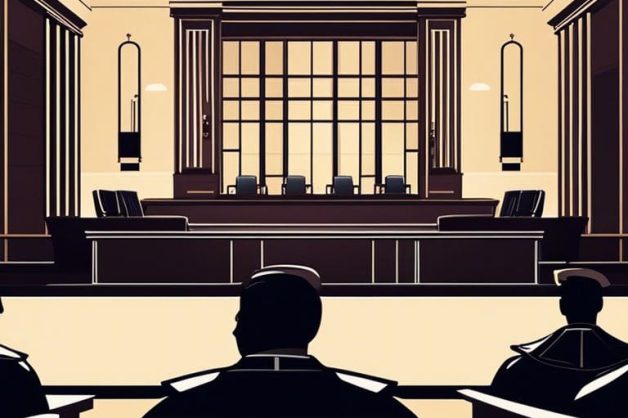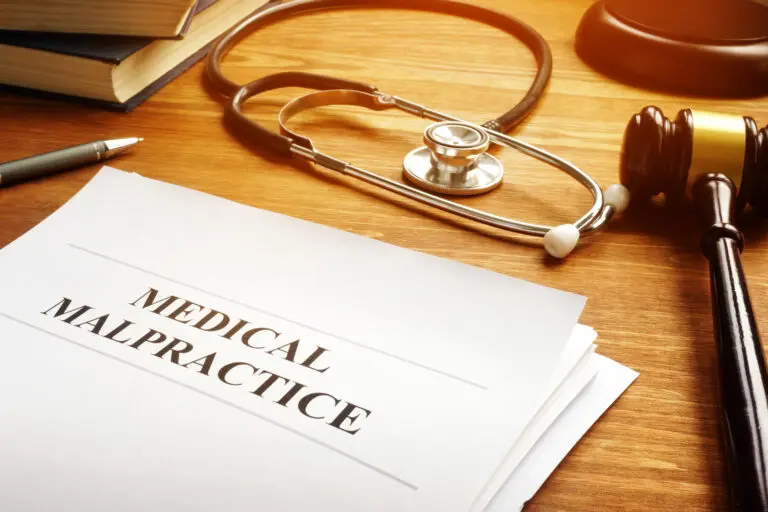A bench trial is a type of trial where the judge serves as the sole decision-maker, rather than a jury. This judicial process is critical in various legal proceedings and offers unique advantages and considerations compared to jury trials. This comprehensive guide explores the intricacies of bench trials, including the legal process, strategic advantages, and implications for legal representation.
What is a Bench Trial?
A bench trial, also known as a judge trial, is a trial in which the judge alone determines the facts of the case and issues a ruling. Unlike a jury trial, which involves a group of peers deciding the outcome, a bench trial relies solely on the judge’s expertise and interpretation of the law.
The Role of the Judge
In a bench trial, the judge assumes multiple roles:
- Fact-Finder: The judge evaluates the evidence presented, assesses the credibility of witnesses, and determines the facts of the case.
- Legal Arbiter: The judge applies the relevant laws to the facts determined, ensuring that the legal standards are met.
- Decision-Maker: The judge issues a final verdict, which may include rulings on guilt or liability and determining appropriate sentences or remedies.
When is a Bench Trial Appropriate?
Bench trials are suitable in various legal contexts, and their appropriateness depends on the nature of the case and strategic considerations.
Types of Cases
Bench trials are commonly used in:
- Complex Legal Issues: Cases involving intricate legal questions or technical evidence may benefit from a judge’s expertise.
- Equitable Relief: Cases seeking non-monetary remedies, such as injunctions or specific performance, often proceed as bench trials.
- Waiver of Jury: In some instances, both parties may agree to waive their right to a jury trial in favor of a bench trial.
Consideraciones estratégicas
Choosing a bench trial can be a strategic decision based on several factors:
- Judge’s Expertise: The judge’s knowledge of the law and ability to understand complex issues may be advantageous.
- Speed and Efficiency: Bench trials can be faster and more efficient, as they eliminate the need for jury selection and deliberation.
- Predictability: Judges are less likely to be swayed by emotional arguments or public sentiment, leading to potentially more predictable outcomes.
The Bench Trial Process
Understanding the process of a bench trial is essential for legal professionals and defendants alike.
Pre-Trial Procedures
The pre-trial phase in a bench trial is similar to that of a jury trial and includes:
- Pleadings: The parties file their respective pleadings, outlining their claims and defenses.
- Descubrimiento: Both parties engage in the discovery process, exchanging evidence and information relevant to the case.
- Pre-Trial Motions: Attorneys may file pre-trial motions to resolve legal issues, exclude certain evidence, or seek summary judgment.
Procedimientos judiciales
During the ensayo, the judge assumes an active role in overseeing the proceedings:
- Opening Statements: Each side presents an opening statement, outlining their case and what they intend to prove.
- Presentation of Evidence: Both parties present their evidence, including witness testimony, documents, and expert opinions. The judge evaluates the evidence based on its relevance and credibility.
- Closing Arguments: After all evidence is presented, the attorneys make closing arguments, summarizing their case and urging the judge to rule in their favor.
- Deliberation and Verdict: The judge deliberates on the evidence and issues a verdict. In criminal cases, this includes determining guilt or innocence, while in civil cases, it involves deciding on liability and damages.
Advantages of Bench Trials
Bench trials offer several advantages that can influence the decision to choose this type of trial.
Experiencia y conocimientos
Judges possess extensive legal knowledge and experience, which can be particularly beneficial in complex cases. Their ability to understand technical evidence and apply legal principles accurately can lead to more informed and precise decisions.
Efficiency and Speed
Bench trials are generally more efficient and quicker than jury trials. The absence of jury selection and the streamlined nature of the proceedings reduce the time required to resolve the case. This can be advantageous in reducing legal costs and expediting justice.
Reduced Emotional Influence
Judges are trained to remain impartial and are less likely to be influenced by emotional appeals or public sentiment. This can lead to decisions based strictly on legal merit, ensuring that justice is served based on the facts and law.
Retos y consideraciones
Despite their advantages, bench trials also present certain challenges and considerations.
Limited Perspectives
A bench trial relies on a single judge’s perspective, which may lack the diverse viewpoints offered by a jury. This can be a disadvantage in cases where multiple perspectives could provide a more balanced and fair decision.
Potential for Judicial Bias
En judges are expected to be impartial, there is always the potential for unconscious bias. The judge’s personal beliefs and experiences may influence their interpretation of the evidence and application of the law.
Perception of Fairness
In some cases, defendants may perceive a jury trial as fairer due to the involvement of peers in the decision-making process. The absence of a jury can lead to concerns about the impartiality and transparency of the proceedings.
Comparative Analysis: Bench Trials vs. Jury Trials
Understanding the differences between bench trials and jury trials is crucial for making informed decisions about the type of trial to pursue.
Toma de decisiones
- Bench Trials: The judge serves as the sole decision-maker, evaluating evidence, determining facts, and applying the law.
- Jury Trials: A group of jurors, representing a cross-section of the community, evaluates the evidence and determines the facts, while the judge oversees the legal proceedings and provides instructions on the law.
Complexity and Expertise
- Bench Trials: Judges are well-equipped to handle complex legal issues and technical evidence, making them suitable for cases requiring specialized knowledge.
- Jury Trials: Jurors bring diverse perspectives and community values to the decision-making process, which can be beneficial in cases involving broad societal issues or where community standards are relevant.
Speed and Efficiency
- Bench Trials: Generally faster and more efficient, as they eliminate the need for jury selection and deliberation.
- Jury Trials: Typically longer due to the jury selection process, the need for juror instructions, and the time required for jury deliberation.
Casos prácticos y ejemplos
Examining real-life cases can provide valuable insights into the application and outcomes of bench trials.
Case Study: Brown v. Board of Education
In the landmark case Brown v. Board of Education, the Supreme Court ruled that racial segregation in public schools was unconstitutional. While this case was ultimately decided by the Supreme Court, it exemplifies how complex legal issues can benefit from the expertise of judges in interpreting constitutional principles and legal precedents.
Case Study: United States v. Microsoft Corp.
En United States v. Microsoft Corp., the government accused Microsoft of antitrust violations. The case was initially heard as a bench trial, where the judge’s expertise in antitrust law played a critical role in evaluating the evidence and determining the company’s liability. The case highlights the importance of judicial expertise in handling complex corporate litigation.
Cambios y tendencias legislativas
Staying informed about legislative changes and emerging trends in bench trials is essential for legal professionals and defendants.
Legislative Reforms
Recent legislative reforms have focused on improving the transparency and accountability of the judiciary, ensuring that judges adhere to high ethical standards and that their decisions are subject to appropriate review.
- Judicial Transparency Act: This legislation aims to increase transparency in judicial proceedings by requiring judges to disclose potential conflicts of interest and providing mechanisms for public access to judicial decisions.
- Judicial Accountability Act: This act enhances the accountability of judges by establishing clear standards for judicial conduct and procedures for addressing complaints against judges.
Emerging Trends
Emerging trends in bench trials include the use of technology to streamline proceedings and the incorporation of alternative dispute resolution methods to resolve cases more efficiently.
- Technology in Trials: The use of video conferencing, electronic filing, and digital evidence presentation is becoming more prevalent in bench trials, improving efficiency and accessibility.
- Alternative Dispute Resolution: Mediación y arbitraje are increasingly used as alternatives to traditional bench trials, offering faster and more cost-effective resolutions to legal disputes.
Ethical Considerations in Bench Trials
Ethical considerations are paramount in bench trials, guiding the conduct of judges and ensuring the fairness and integrity of the judicial process.
Judicial Impartiality
Judges must maintain impartiality and avoid any actions that could create an appearance of bias. This includes avoiding conflicts of interest, refraining from ex parte communications, and making decisions based solely on the evidence and law.
- Conflict of Interest: Judges must disclose any potential conflicts of interest and recuse themselves from cases where their impartiality could be reasonably questioned.
- Ex Parte Communications: Judges must avoid ex parte communications with parties or attorneys involved in a case, ensuring that all communications occur in an open and transparent manner.
Judicial Ethics
Adherence to ethical standards is essential for maintaining public trust in the judiciary and ensuring fair and just outcomes.
- Code of Judicial Conduct: Judges are bound by a code of conduct that outlines ethical principles and standards of behavior, including integrity, impartiality, and diligence.
- Continuing Education: Judges are required to participate in continuing education programs to stay informed about legal developments and ethical standards.
Conclusión
Understanding the process and importance of bench trials is essential for legal professionals and defendants navigating the complexities of the judicial system. Bench trials offer unique advantages, including judicial expertise, efficiency, and reduced emotional influence. However, they also present challenges, such as limited perspectives and potential for judicial bias.
By staying informed about the legal process, strategic considerations, and ethical standards, individuals can make informed decisions about pursuing a bench trial and work towards achieving fair and just outcomes. This comprehensive guide highlights the critical role of bench trials in the legal system, providing valuable insights for those involved in legal proceedings.
Attorneys.Media Video Document References
- Is Personal Injury Part of Your Law Practice?
- As an Attorney, How Are You Generating Content for Your Online Presence?
- How Can You Help Potential New Clients Get Their Questions Answered?
- How Do You Differentiate Yourself When Someone Looks Online for Help?
- How Do You Differentiate Yourself as a Criminal Defense Attorney?
- Have You Been Thinking About Video Marketing for Your Law Firm?
- Should Attorneys Use Video Marketing to Attract New Clients?
- What Do Potential Clients See When They Research Your Name Online?
- Cómo puede ayudarle Attorneys.Media









